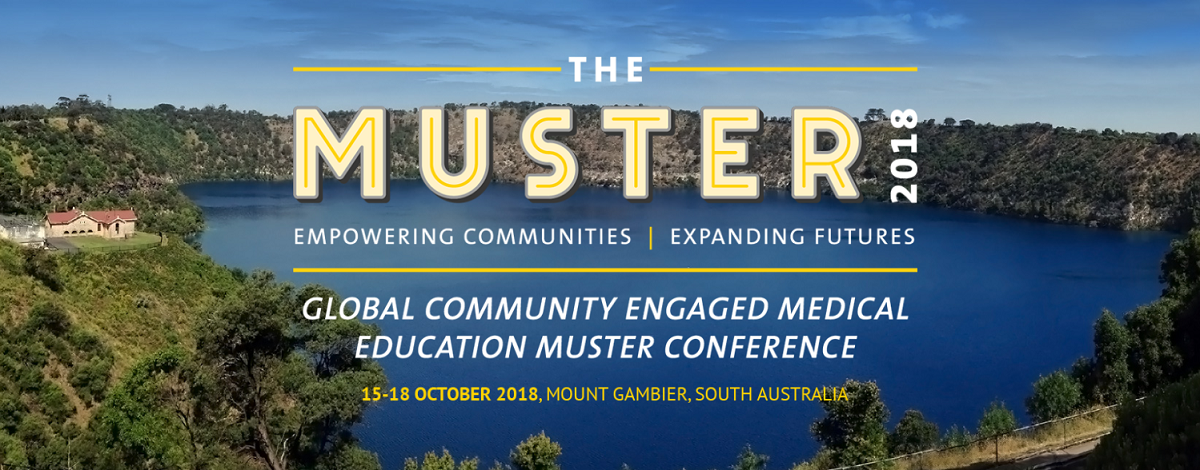
Community engagement is the focus of an international medical conference to be held in Mount Gambier, which will draw delegates from Australian and overseas to explore medical training through the topics of people and communities; integrated training; culture and wellbeing and rural workforce.
The Muster 2018 is the sixth biannual conference jointly hosted by Flinders University and Northern Ontario School of Medicine and will be held over 15 to 18 October.
National Rural health Commissioner Emeritus professor Paul Worley (former Dean of medicine at Flinders) will join other esteemed keynotes including Dr Andre-Jacques Neusy who is director of the global Training for Health Equity Network and honorary professor of medicine at New York University School of Medicine, and Dr Carrie Bourassa from the North Research Institute in Ontario, who is Scientific Director of the Institute of Aboriginal Peoples’ Health at the Canadian Institutes of Health Research.
In the spirit of the event’s ethos that places the community in the driving seat of health, the approximately 300 delegates, will be immersed in Mount Gambier’s facilities and businesses as part of the conference experience, providing the opportunity to engage with the local community. A special feature will be a gala dinner on 17 October and an Aboriginal panel featuring Local Elders, Flinders University Aboriginal Academics, and International Indigenous Representatives.
The mix of international and Australian educators, researchers, students and healthcare practitioners attending the event, will also have the opportunity to explore Kangaroo Island or Broken Hill as part of the Conference on the Move event preceding the Muster.
The Muster 2018 themes:
- People & Communities – Empowering communities to shape medical education for the benefit of community members and health professionals.
- Longitudinal and Integrated Training – Entwining clinical learning around the patient as the central core, drawing together clinical sciences and the art of medicine in a meshing of specialty disciplines.
- Culture and Wellbeing – Exploring how community-engaged medical education can build inclusive cultural perspectives in health services and health education.
- Rural Workforce – Exploring the impact of Community Engaged Medical Education programs on rural health workforce, including sustainable models of training and workforce outcomes.

